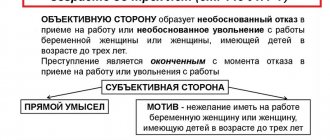Rights and responsibilities of guardians (trustees) of minor children
The rights are quite broad. Regarding children they:
- raise as parents, provide education (choosing an educational institution, determining the educational process),
- carry out transactions on behalf of a ward under 14 years of age, and give permission for large transactions to wards from 14 to 18 years of age,
- represent the interests of children in various organizations and before the state,
- receive child support from the state.
The state imposes responsibilities on trustees such as:
- care and concern for children’s health, mental and physical development,
- provide decent housing,
- clothe and feed
- if necessary, purchase medicines, provide medical care for the child,
- live with children under their care until at least 16 years of age,
- teach and educate,
- support children, protect their rights, help fulfill their duties,
- represent the interests of the child in various bodies if necessary,
- do not interfere with communication with living parents,
- annually submit a report with a detailed calculation of all amounts that were used from the child’s property balance. The report and sample can be found in the “Download documents” section
Requirements for the identity of the guardian
As a general rule, a guardian can be an adult capable person. These are the main criteria. When considering candidates, guardianship authorities will take into account other requirements.
Close relatives have priority rights: grandparents, adult brothers or sisters, etc.
Also, when choosing a candidate, the child’s own opinion will be taken into account. When reaching ten years of age, an opinion is necessarily asked, but the words of younger children can also be taken into account, how attached the child is to the guardian or vice versa, for example, a strong fear of this person.
Who can become a guardian
The person who undertakes the care and upbringing of a minor child may be:
- a legally capable person over 18 years of age and not over 60 years of age (more on this below),
- has undergone special training,
- a citizen of the Russian Federation who has no criminal record, arrests and has not committed other illegal acts, especially in relation to the life and health of citizens,
- a physically and mentally healthy person who does not have bad habits in the form of alcohol or drug addiction.
Without the consent of the candidate himself, he cannot be appointed as a guardian. This is a voluntary and very responsible matter.
Who cannot be a guardian
Guardianship and trusteeship authorities will never approve a person’s right to be a child’s guardian if:
- he is under 18 years old,
- deprived of parental rights or limited in these rights,
- has a criminal record for crimes against the life and health of citizens and society as a whole,
- was previously a guardian, but was removed due to his illegal actions,
- suffers from addiction to drugs, alcohol, money betting, etc.,
- is physically disabled and cannot perform his duties (for example, a disabled person of group 1) or suffers from a certain list of diseases.
- has not been trained and has not received the special right to become a trustee. The exception is the child’s relatives or citizens who already have wards, i.e. already experienced in this matter.
Guardian's age over 60 years
The general rules are described in various sources and sites, however, in practice, many are faced with a bunch of questions to which they cannot find answers.
What is the age limit for a guardian of minors, up to what age can one become a guardian and up to what age can guardianship be issued? We will try to answer these questions for you.
In the Civil Code of the Russian Federation, Article 35 provides a closed list of official requirements for guardians. Regarding age, it states that guardians are legally capable persons over 18 years of age. The legislator has not determined the age limit.
The age limit of a guardian or trustee is not limited by law!
However, in practice you can often hear that a person no older than 60 years old can become a guardian. This unspoken rule was applied by the guardianship authorities in order to protect the interests of children.
Citizens over 60 years of age may not be able to fully meet all the requirements for children. With age, memory, mental and physical indicators deteriorate. Guardianship requires a lot of activity, especially over children, and a lot of physical effort.
Another concern is that an adult may himself become infirm, either due to age and illness, or even die. This will be a strong psychological trauma for the child. Then he will have to get used to new people again, a new way of life, move, not to mention the loss of a loved one. Guardianship authorities try to ensure that guardianship ends on the basis of reaching 18 years of age, and not because of sad facts. Children should grow up in normal conditions under the guardianship of a responsible, active, positive person.
If there is a desire to appoint a person over 60 years of age as a guardian, the guardianship authorities cannot give a categorical answer if the citizen looks good and feels good. In any case, it is necessary to submit an application for consideration to the guardianship authorities, providing all possible data for a positive decision: medical certificates, references from neighbors, or even from work. If a citizen works, then the 2-NDFL certificate will also have a positive impact.
As mentioned above, close relatives have a priority right to guardianship, therefore guardianship authorities often appoint grandparents of children as guardians over 60 years of age.
Features and nuances
In addition to guardianship and trusteeship, there is another form of providing for people - patronage. This form is established for persons over 18 years of age who suffer from serious health problems and cannot protect their interests or exercise their rights. The foster relationship is not associated with the limitation of legal capacity or its complete deprivation; there is no need to exercise full control over the ward. A person makes decisions independently, without obtaining permission, and an assistant only facilitates their implementation.
A civil contract is drawn up with the assistant, the format of which depends on the services provided. Thus, a trust management agreement or mandate may be concluded. The contract is concluded for a limited period, services are provided on a paid basis. Once the contract expires, the patronage is no longer valid.
To apply for patronage, you must contact the territorial department of the guardianship authorities with an application and documents.
When does guardianship/trusteeship end?
Termination upon reaching age:
- Guardianship ends when the minor turns 14 years old and automatically takes the form of guardianship.
- Guardianship ends at age 18, and if the teenager is a full-time student, it can be extended until age 23.
In other cases, termination may occur in accordance with the Federal Law “On Guardianship and Trusteeship”, Article 29:
- the term in the contract has expired,
- emancipation,
- the parents wrote a letter of termination (for example, if they themselves asked to appoint a guardian because they went on a business trip for a year),
- death of one of the parties to legal relations (a certificate is presented - a death certificate,
- the incapacity of the guardian (trustee) has occurred,
- the guardian was removed from performing his duties (for example, due to an encroachment on the ward’s funds, embezzlement),
- identifying other reasons,
- voluntary waiver of obligations.
Guardian rights
The issue of guardianship at the legislative level is regulated by the law of April 24, 2008. No. 48-FZ “On guardianship and trusteeship”, the Family Code of the Russian Federation (FC RF), as well as the Civil Code of the Russian Federation (Civil Code of the Russian Federation). Young children who have not yet turned 14 years old are brought up by guardians (Article 32 of the Civil Code of the Russian Federation). Upon reaching the age of 14, guardianship may be established over them.
Guardians have almost the same rights in relation to children as parents, but there are some special features. Thus, citizens who have assumed the responsibility of guardianship of a minor child, in accordance with Art. 148.1 of the RF IC and Article 15 No. 48-FZ, has the right:
- Independently choose methods of raising a ward , but be sure to take into account the recommendations of the guardianship and trusteeship authority. In addition, the child’s opinion should also be taken into account.
- When choosing the most suitable educational institution , the opinion of the minor should also be taken into account.
- Go to court to resolve the issue of returning the child if he is illegally detained by other persons who have no reason to do so (parents, relatives and others).
- Contact the relevant authorities to receive financial support (allowances, benefits).
- Act as a plaintiff when going to court to collect obligations relating to the child (for example, receiving alimony).
- Protect the rights and interests of the child by all possible legal methods.
The rights of guardians are very closely related to their responsibilities, as well as to the rights of the minor ward himself. The guardian's actions must not in any way infringe on the rights and interests of the child.
Benefits and other payments to guardians
The state provides financial support to guardians, which is used for the full maintenance of their wards. Thus, the legislation provides for the following types of benefits:
- lump sum - paid at the time the minor is placed in a family (with guardians, trustees);
- monthly - guardians receive money every month to support the ward;
- regional - additional material support, which is established by local governments in the region of residence.
The amount of a one-time benefit when placing a child in a family is paid in the amount of 16,759.09 rubles. It was installed on 02/01/2018. taking into account indexation based on Decree of the Government of the Russian Federation dated January 26, 2018 No. 74.
The amount of benefits depends on the region of residence of citizens. The amount of payments is also affected by the age and health status of the child under care. Thus, children with disabilities are given increased benefits.
All funds allocated by the state must be used in the interests of the child under guardianship.
A person raising a minor does not have the right to use the money received for personal purposes.
The guardianship and trusteeship authority monitors the use of social benefits.
Privileges
Guardians have the right to count not only on various benefits, but also on a number of benefits that relate to work and taxation. In addition, at the regional level, certain benefits are also provided for this category of citizens.
The following labor benefits apply to persons caring for minor children:
- maternity leave until the child reaches 3 years of age (Article 13 No. 81-FZ, Article 256 of the Labor Code of the Russian Federation);
- leave when a child is sick;
- part-time/week (Article 93 of the Labor Code of the Russian Federation);
- no night shifts until the child reaches 5 years of age (Article 96 of the Labor Code of the Russian Federation);
- additional days off if the child has a disability group (Article 262 of the Labor Code of the Russian Federation);
- choosing the time for vacation if guardianship is established over a disabled child (Article 262.1 of the Labor Code of the Russian Federation).
The legislation gives guardians the right to tax deductions from the personal income tax base.
The amount of the tax deduction depends on the number of children and is:
- 1400 rub. - for the first two wards;
- 3000 rub. - for the third and subsequent wards;
- 6000 rub. - for a disabled child.
If one person has custody of a child, then he is entitled to a double deduction (clause 4 of Article 218 of the Tax Code of the Russian Federation). Guardians also have the right to receive a property tax deduction if they decide to purchase real estate or land for its construction as the property of their wards (clause 6 of Article 220 of the Tax Code of the Russian Federation).
Regional benefits can be established in the following form:
- discount on housing and communal services, telephone;
- discount on kindergarten fees;
- free travel on public transport;
- free meals for children in kindergarten and school;
- obtaining medicines and textbooks for a child at a lower cost.
All benefits and allowances established at the legislative level are aimed at improving the living conditions and development of minor children under guardianship.
Is it possible for a guardian to sell an apartment owned by a minor?
The issue of property rights of a minor ward is regulated by Law No. 48-FZ, as well as the Civil Code of the Russian Federation. Guardians, by taking responsibility over the ward, do not acquire any ownership rights to his property.
According to Art. 20 No. 48-FZ, real estate owned by a ward is not subject to alienation. The only exceptions are the situations listed in clause 1 of Article 20 No. 48-FZ. For example, exceptions include a change of residence of the ward or the need to pay for expensive treatment.
Alienation of property that belongs to a minor, including one under guardianship, can only be carried out with the consent of the guardianship and trusteeship authority. The guardian does not have the right to enter into a transaction for the transfer of property, as well as leasing it, unless permission to do so has been previously obtained.
When considering such situations, the guardianship and trusteeship authority must take into account how the transaction will affect the life of the ward. Alienation of real estate should not worsen the child’s living conditions, that is, in exchange for the sold apartment, he should be provided with similar real estate.








